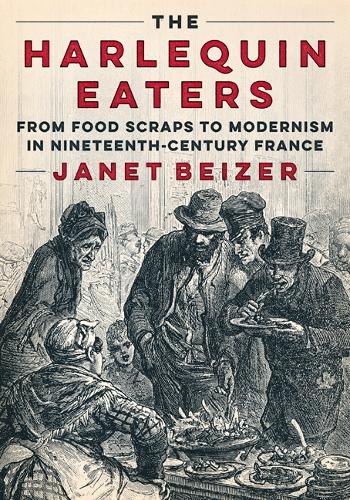
The Harlequin Eaters: From Food Scraps to Modernism in Nineteenth-Century France
(Paperback)
Available Formats
Publishing Details
The Harlequin Eaters: From Food Scraps to Modernism in Nineteenth-Century France
By (Author) Janet Beizer
University of Minnesota Press
University of Minnesota Press
10th July 2024
United States
Classifications
General
Non Fiction
Cultural studies: food and society
Urban communities / city life
European history
363.80944361
Physical Properties
Paperback
352
Width 178mm, Height 254mm, Spine 18mm
567g
Description
How representations of the preparation, sale, and consumption of leftovers in nineteenth-century urban France link socioeconomic and aesthetic history
The concept of the harlequin refers to the practice of reassembling dinner scraps cleared from the plates of the wealthy to sell, replated, to the poor in nineteenth-century Paris. In The Harlequin Eaters, Janet Beizer investigates how the alimentary harlequin evolved in the nineteenth and early twentieth centuries from the earlier, similarly patchworked Commedia dellarte Harlequin character and can be used to rethink the entangled place of class, race, and food in the longer history of modernism.
By superimposing figurations of the edible harlequin taken from a broad array of popular and canonical novels, newspaper articles, postcard photographs, and lithographs, Beizer shows that what is at stake in nineteenth-century discourses surrounding this mixed meal are representations not only of food but also of the marginalized peoplethe harlequin eaterswho consume it at this time when a global society is emerging. She reveals the imbrication of kitchen narratives and intellectualaesthetic practices of thought and art, presenting a way to integrate socioeconomic history with the history of literature and the visual arts. The Harlequin Eaters also offers fascinating background to todays problems of food inequity as it unpacks stories of the for-profit recycling of excess food across class and race divisions.
Author Bio
Janet Beizer is C. Douglas Dillon Professor of the Civilization of France at Harvard University. She is author of Thinking through the Mothers: Reimagining Womens Biographies, Ventriloquized Bodies: Narratives of Hysteria in Nineteenth-Century France, and Family Plots: Balzacs Narrative Generations.
